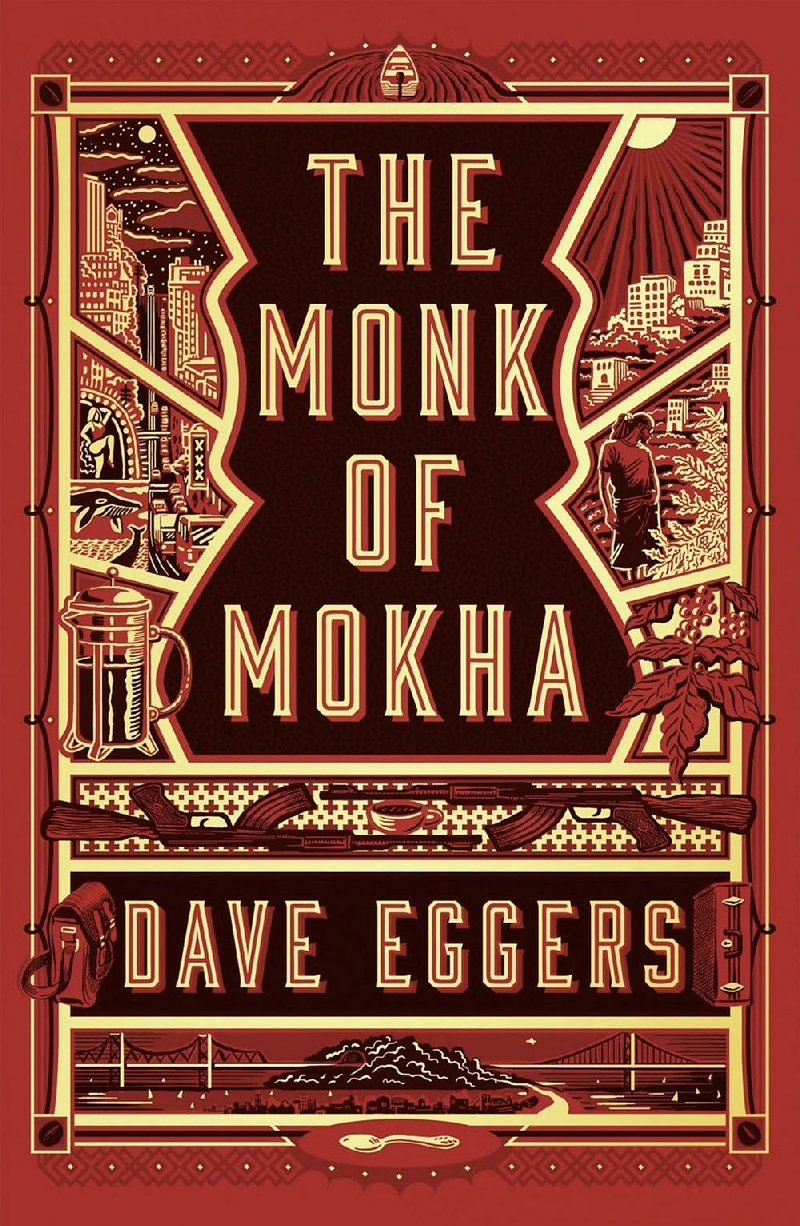Dave Eggers has been hit-and-miss as a novelist -- The Circle (2013) and Your Fathers, Where Are They? And the Prophets, Do They Live Forever? (2014) were didactic preachments torn from the headlines, while 2016's warm and human-scaled Heroes of the Frontier was possibly his most satisfying book since A Heartbreaking Work of Staggering Genius brought him to the attention of the wider world back in 2000.
While one understandably approaches his latest The Monk of Mokha (Knopf, $28.95) with trepidation (a function, partly, on the basis of the close-to-garish red and gold-embossed cover design) it's good to report it is a nonfiction work in the mode of 2006's What Is the What, about Sudan's so-called Lost Boys, who
fled their villages to roam for years through war zones, or 2009's Zeitoun, about a Syrian-American Hurricane Katrina survivor who was rounded up as terrorism suspect in the wake of the catastrophe.
That is to say it's a fascinating and deeply reported true story that not only relates the unlikely adventures and tribulations of self-made entrepreneurs, but comments on the power of our stories to keep us alive.
A child of poor Yemeni immigrants, Mokhtar Alkhanshali worked as a doorman -- styled "lobby ambassador" -- in an upscale San Francisco apartment building after seemingly losing a chance at a better future in one throw. (He carelessly left a fashionable leather bag that his girlfriend had given him containing a laptop computer bought with a loan from his brother and $3,000 in other people's cash he was planning on delivering to a charity in a parking lot.)
Growing up street-smart in San Francisco's tough Tenderloin district, Mokhtar was an indifferent student who relied on his natural charm and ability to read people to get by. A quick study, he discovered as a teenager that preppie clothes and a genial manner were sufficient to win the trust of most rich people. Yet while he expected great things of himself, his high aspirations were not matched by sufficient energy or seriousness of purpose.
Then he learned that Yemen had once been an important player in the coffee trade, though in recent years Yemeni coffee had gained a reputation as the worst in the world -- the few remaining coffee farmers in the country were impoverished.
With no experience in agriculture or as an importer and indifferent to the taste of coffee, in 2013 Mokhtar flew to Yemen to visit his extended family and all 32 coffee-growing regions of the country. He met with farmers and developed plans to improve the quality of their crop and the efficiency of their methods. Improbably he seemed poised to re-introduce Yemeni coffee as a high-end specialty product when the Yemeni civil war broke out.
In March 2015, rebels from the country's north swept into the capital Sana'a where Mokhtar was visiting a coffee company. In response to the invasion, the Saudis began bombing the city, trying to force them out. Mokhtar thought it better to hunker down in a residential neighborhood rather than risk leaving the capital. He counted more than 80 bombs exploding that night.
The next morning he called a travel agency to book passage from Sana'a to a specialty coffee show in America. His travel agent informed him there was no longer any airport.
Eggers tells the story of the preternaturally agreeable Mokhtar's return with an understated drollness that echoes the tone of Zeitoun, where bureaucratic horror and the threat of dying made a kind of background drone. (It's not hard to imagine The Monk of Mokha adapted into a dark comedy for the screen.) While as usual Eggers touches on themes of race and religion (the book opens with the trial of Boston Marathon bomber Dzhokhar Tsarnaev playing on a TV in the background) The Monk of Mokha seems to be as much a celebration of a certain hustler spirit -- one that might have informed Huck Finn -- than pity for the poor immigrant.
Which is to say it's not about a type at all, but about a lucky dude named Mokhtar and the crazy stuff he did to make it home.
. . .
I'm not a fan of fiction that apes the cinematic experience -- I look to movies and books for different things. But had I more space, I could write a lot about Jonathan Ames' novella You Were Never Really Here, which is coming soon to a theater near you as a Lynne Ramsay film starring Joaquin Phoenix. I read the book in a single sitting in about the same amount of time it will take to watch the movie (75 minutes) and I don't know how anyone could do it differently.
Ames is a veteran TV comedy writer (HBO's Bored to Death), but this is a gripping horror noir about a suicidal veteran turned violent fixer who goes off on a frolic of his own after a mission goes bad. I'm not sure what to make of it, but it will transport you.
Email:
pmartin@arkansasonline.com
blooddirtangels.com
Style on 03/04/2018

